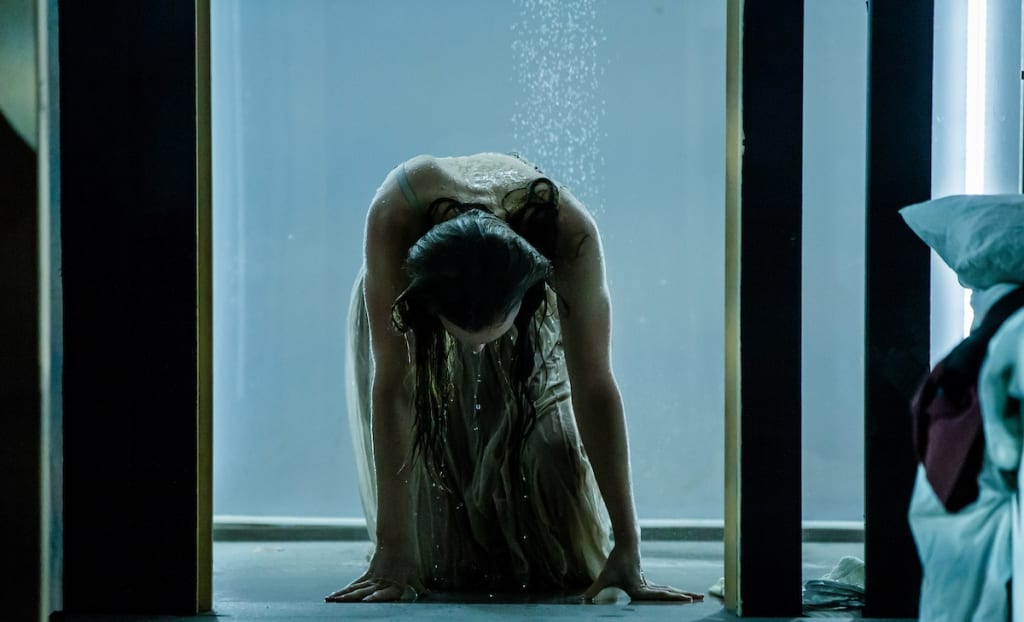A new production by English Touring Theatre, Theatre Clwyd and Nuffield Southampton Theatres simply proves once again that the Tennessee Williams’ play, A Streetcar Named Desire, is one of the great pieces of twentieth century theatre. The concept and direction by Chelsea Walker (who won the prestigious RTST Sir Peter Hall Director Award) are thought-provoking in the way sthe play is updated to the present but the approach is also totally faithful to the original text. This is a case of a “contemporizing” interpretation that is stimulated by what is actually there rather than the imposition of a director’s view of what ought to be there.
The cast is excellent, with Kelly Gough especially tireless in the demanding, complex role of Blanche DuBois. She does a superb ob in conveying the stresses and pressures upon Blanche that have led to her arrival in New Orleans seeking refuge with her sister, Stella,. She conveys the nuances of Blanche’s fractured state from the moment she arrives on stage pulling her suitcase and she grades a slow disintegration of Blanche’s control over her fragile mentality that is eventually destroyed by her rape by her brother-in-law, Stanley. She also conveys strongly that her sexual voracity is compelled by a huge need for love and by her guilt over her husband’s death. This is a fine performance. Blanche is played rather younger and, in some ways, stronger than usual. Like the production as a whole, there is something stark about it.

The social gradations of the play are also well-conveyed. As Stanley Kowalski, Patrick Knowles, is superb in his blinkered self-confidence and macho insensitivity along with a raging sexuality and a little-boy-lost need for his wife, Stella. You sense the suppressed rage and brutality before you see him unleash it, first on his wife, and then devastatingly on Blanche. This is definitely a staging that is aware of the Me Too events of this past year and makes the play all the more accessible because of it. The male bonding rituals are strongly acted; Stanley actually has moments when he is more like an animal than a man. The underlying eroticism and lustful attraction between Blanche and Stanley is also well acted.
All the other casting is strong, especially Amber James as Stella Kowalski and Dexter Flanders as Mitch. The original film, with Vivien Leigh brilliantly and movingly repeating the stage role she played so successfully in London and the rest of the original Broadway cast, especially Marlon Brando, Kim Stanley and Karl Malden, preserving their original interpretations, is an interesting contrast to this somewhat edgier and more contemporary-aware approach. If you do not know the play, this production and that film are good ways to experience it for the first time. What the current touring production lacks in ultimate finesse, it more than makes up for in energy, sensitivity and true engagement with the original text (which is somewhat gelded in the 1951 film because of the censorship needs of that era). The set design by Georgia Lowe is functional, interesting and attractive; it provides the cast with all the exits and entrances they need and enables an almost cinematic flow from scene to scene. Joe Manjon differentiate his parts as Pablo, the Doctor at the end and the Young Man clearly. The ending is especially strong, with the set being dismantled as if it was in the New Orleans hurricane once the emotional violence erupts like a hurricane. There is also a real sense of the long, hot summer and the languor that masks real danger.

